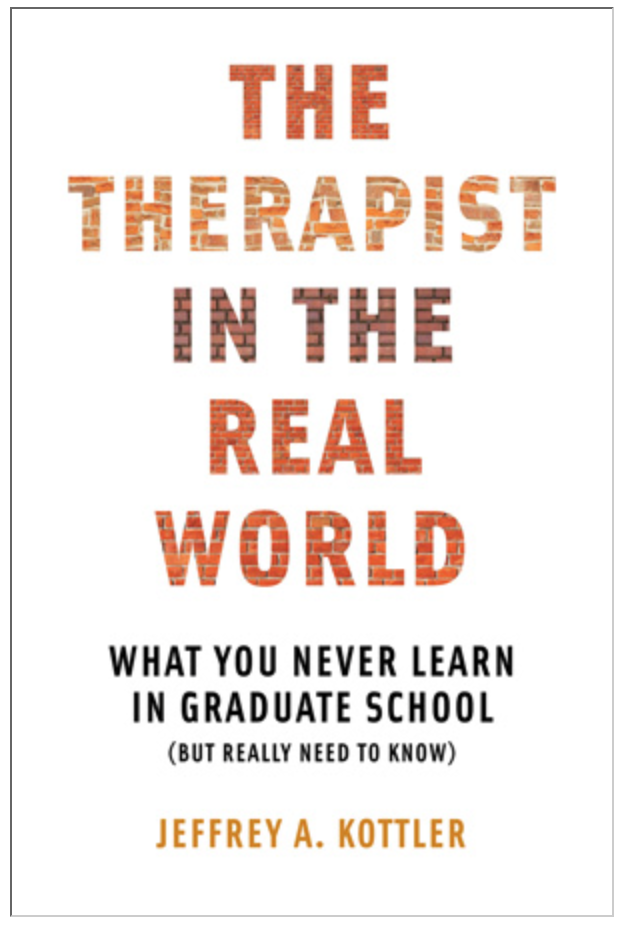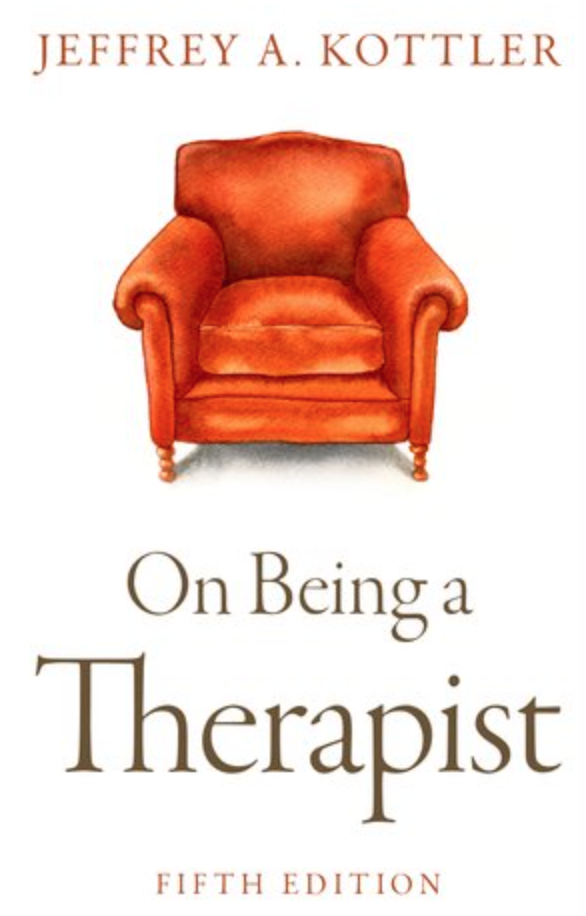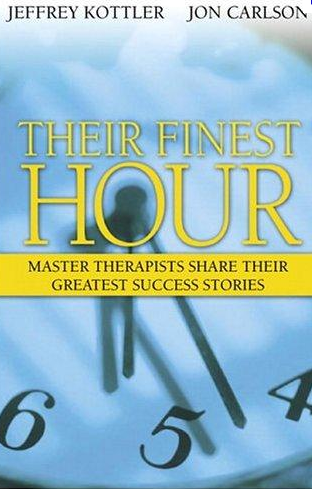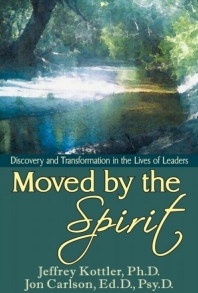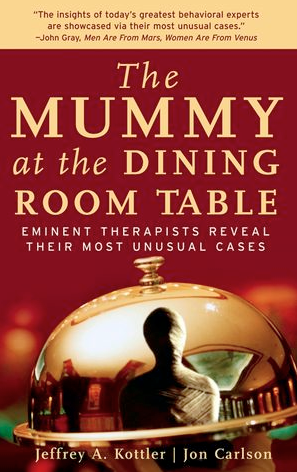Book Reviews
“Kottler, a psychiatry professor at Baylor College of Medicine, offers an insightful and surprisingly fresh examination of the tired topic of leadership. What sets this work apart from the legion of books on the subject is the underlying premise that effective leaders must model in their own lives the behavior they seek to inspire in others. He explores the benefits of admitting what one doesn’t know and the pitfalls of leadership blind spots. An invaluable chapter on having “meaningful interactions” delves into the ubiquitous experience of dull and endless meetings, along with tips for improving them, such as “inviting collaboration” and “suggesting constructive steps of action.” Kottler also provides an intriguing, if too short, list of the attributes that distinguish great leaders from poor ones and an intriguing look at the leadership styles of American presidents. His exploration of bad management will resonate with people at all levels of the corporate ladder, as will his chapter on leadership in everyday life. Readers in leadership positions will appreciate Kottler’s reminder that, as he writes at the book’s conclusion, “it’s not just about what you do, but who you are” that makes the difference.” -Publisher’s Weekly
On Being a Master Therapist: "Jeffrey Kottler and Jon Carlson have long been the Lennon and McCartney of our profession, producing many well-known 'hits' both jointly and separately--10 books together, plus more than 100 other books and more than 300 professional training videotapes--and they are deservedly the recipients of bushels full of accolades. And now this gift to the field: “[T]his one represents our definitive word on what we think matters most in creating and sustaining superlative therapeutic practice. It is also our most personal book....[It] contains within it all we have ever hoped to say but perhaps never had the courage to speak so bluntly about many of the issues.”
They assert: “we believe that true mastery is evidenced by those who go beyond what is known and show a level of creativity and originality that is truly remarkable. Master therapists are innovators and deep thinkers, those among us who advance our knowledge through their scrupulous critical reflection and experimentation, always searching for more effective ways to be helpful to their clients. We also hold dear to our hearts the belief that truly great professionals feel a commitment to something far greater than their own clients and become actively involved in advocacy within their own communities or on a global scale.”
Best friends as well as colleagues, Kottler and Carlson punctuate shared sections of the book with individual, personal anecdotes and case stories--sometimes to further explore a topic, sometimes to offer some funny banter, sometimes as a means of further engaging the reader in a profound awareness of life-and-death issues. (Spoiler alert: No one lives forever, dear reader, not even you and me.)
Kottler and Carlson supplement their own vast clinical expertise, extensive reading of the literature, and sharp observation of many master therapists at work (often done as part of producing training videotapes) with interviews they conducted with dozens of well-known practitioners (disclosure: this reviewer was one of the many interviewees). They note that regardless of their particular approach to therapy, all master therapists bring to the therapy enterprise caring and compassion, lots of knowledge, the ability of make connections others would miss, keen curiosity, and highly developed relationship skills. They also tend to be highly ambitious and aspire to greatness, they work harder than other folks, they use failures and mistakes as valuable feedback to improve their performance, they have passion and love for their work, they found their own voice, their ideas developed over time, and their clients were their greatest teachers.
The main body of this fine book develops these ideas: deep compassion and caring; really, really listening; being fully present while focused on the other; knowing what is likely to make a difference; speaking the truth; being authentically oneself, not just a technician; making mistakes and inviting feedback to inform and deliberately improve practice; the power of love; being creative; promoting social interest and advocacy; and recognizing that we are all works in progress, learning, leaning in, embracing mystery and continuing to explore and grow.
Think of the real, undisputable “masters” that you know of: Milton Erickson? Salvador Minuchin? Jay Haley? Virginia Satir? Albert Ellis? Do they fit these descriptions? What would help the rest of us to move further in those directions? In this thoughtful, heartfelt, and inspiring book, Kottler and Carlson have pointed the way. Readers (and their clients) will be very well rewarded. - Michael Hoyt, Ph.D., Newsletter of the Milton Erickson Foundation
The Therapist in the Real World: “[A]n excellent resource for those in graduate school or early career professionals who want to be exposed to issues, concepts, conflicts, and challenges that they had not previously considered. . . . The settings and the scenarios presented are quite varied, and this is a strength of the book. . . . It is not possible in graduate school to learn everything you need to know to be an excellent helping professional. With this volume, Kottler provides graduate students and early career professionals with a look at what might lie ahead and a way to think about what may lie ahead that cannot currently be imagined.” — PsycCRITIQUES
“Kottler sets out to provide the unfiltered truth about being a therapist — even if it alarms us. . . . [F]rank, but also encouraging. . . . Kottler offers useful strategies for survival . . . . [H]e shows us how to get the most out of supervision, use creativity to facilitate breakthroughs, admit when we are lost, express curiosity rather than doubt, and teach people to help us when we are stuck — all pivotal skills of effective therapists in the real world.” —PsychCentral
“In his most recent book, The Therapist in the Real World, the prolific Jeffrey Kottler offers therapists an amazing amount of useful and practical information. In recommending this practical book, I conclude with Kottler’s code: That we do not leave our graduate training behind (nor should we!) when we go out into the real world. And, that we continue to be passionately committed to learning and becoming the best we can be, not just with our clients, but in our everyday lives.” — The Milton H. Erickson Foundation Newsletter
“Professional therapists, particularly those newer to their practice, will find the book highly accessible in its writing and presentation of what to expect in the therapeutic experience. Students of clinical psychology will also especially benefit from the frank analysis undertaken to explain where training falls short, why, and what to do to find greater fulfillment in the field. . . . [H]ighly recommended for those students and practitioners experiencing burnout or who are otherwise unable to receive meaningful vocational advice from mentors.” — Somatic Psychotherapy Today
On Being a Therapist: "This is one of those rare and exciting books that reaches deep into the heart of a profession and discloses not only its day-to-day workings but also the very personal satisfaction, doubts, and joys its practitioners experience."
- Booklist
Compleat Therapist: "Jeffrey Kottler has taken on a daunting challenge: to examine the chaotic field of psychotherapy today and abstract ‘what works.’ He makes his survey with wit, humility, and clinical sophistication. That his conclusions will stir controversy should surprise no one—that’s the mark of a courageous book."
- James F. T. Bugental
Their Finest Hour: "What an incredibly varied compilation of amazing therapists who, through sharing of their insights, strategies, intuitions, and theories, offer both rookie and experienced therapists alike, golden nuggets that inspire and instruct! The richness of the stories of clients’ lives is woven into tapestries that read like a novel. I love this book!"
- Michele Weiner-Davis, MSW
Bad Therapy: "This book is a comfort to those of us who practice the impossible art of psychotherapy, because it shows how to admit mistakes, study why we made them, and become better therapists in the process. These cases are worth several graduate courses in psychotherapy."
- William Doherty, Ph.D.
Theories of Counseling and Therapy: "This book is a page turner. This is the only textobook that I have actually read, cover to cover, in my whole college career."
- Carlos, Graduate Student
"I love this book! I take it everywhere I go on the weekend. My boyfriend even said to me, "Put that book down and talk to me!"
- Zoraida, Graduate Student
Private Moment, Secret Selves: "Kottler seeks to reframe loneliness as active solitude by teaching us how to take control and will our own solitude. . . This book is one of the best of its kind. It tells us what we need to hear in an inventive and powerful way." - Los Angeles Times
Moved by the Spirit: "The stories. . . describe the many ways to spiritual transformation. Each resulted in creating a life-changing path that gave greater meaning, purpose, and fulfillment to the person’s life."
- Deepak Chopra, M.D.
Lust for Blood: "A personable and comprehensive tour of the violent entertainment we love to hate and hate to love. Kottler ably explores our paradoxical lust and revulsion as a cathartic means of restraint, with specific attention to its psychological impact: seeing violence within a media frame makes us feel alive, recharging us to face our private anxieties about life-and-death issues. This book offers something for everyone, from media psychologists to fans of splatter films."
- Katherine Ramsland, Ph.D., author of Mind of a Murderer
Mummy at the Dining Room Table: "Reaches deep into the heart of human nature. The reader will never be the same after exposure to these fascinating cases. Looking into the therapy hour at the world's finest therapists and their most unusual cases can change your view of life. Many of these cases are heartwarming while others are beyond belief"
- Jack Canfield, co-author of Chicken Soup for the Soul series
The Client Who Changed Me: "These stories connect with us with the reason most therapists go into the profession—to discover with their clients how to live, how to love, and how to thrive even when faced with life’s dark places. This is a book that gives me hope that, as therapists, we are not becoming soulless technicians—at our best we are able to meet our clients as fellow human beings and stand beside them with honesty and compassion."
- Susan M. Johnson, Ph.D.
The Last Victim: "Engrossing. . . Reads like a true-life Silence of the Lambs."
- Maxim
The Assassin and the Therapist: "One part adventure thriller, one part clinical case study, and one part sage counsel on the practice of psychotherapy, The Assassin and the Therapist offers a unique and unflinching examination of the subject of truth and trust in the counseling relationship, and indeed, in everyday life. Kottler’s magnetic meditation on the nature of the narrative in the construction of our life stories makes for riveting reading, as instructive for the seasoned practitioner as for the novice therapist. I recommend it to every clinician who strives to listen both credulously and critically to client accounts, and to forge a way forward in the slippery terrain of the formulation and reformulation of a client’s self-narrative."
- Robert Neimeyer, Ph.D.



